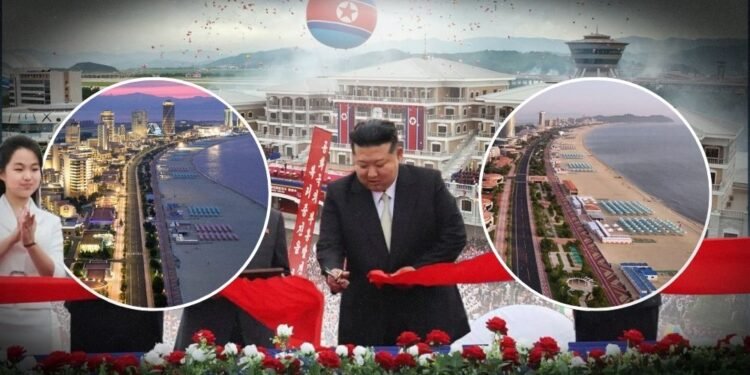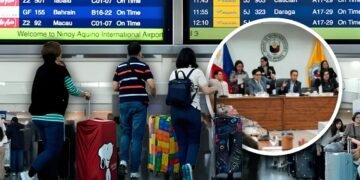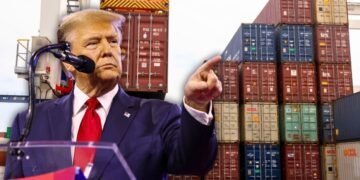North Korea’s recent announcement of the Wonsan Kalma beach resort’s opening marks a significant development in the country’s approach to tourism and international engagement.
Located on the eastern coast, this resort, developed over nearly a decade, represents a calculated effort by the Kim Jong Un regime to diversify revenue streams and project an image of openness, albeit within tightly controlled parameters.
The resort, spanning 6 square kilometers, features hotels, a marina, and recreational facilities, aiming to attract both domestic and international visitors.
This initiative, however, is not merely about tourism; it is deeply intertwined with North Korea’s broader economic and diplomatic strategies, particularly in the context of ongoing international sanctions and domestic resource allocation.
The resort’s development, which began in 2018, has been a priority for Kim Jong Un, reflecting his vision of leveraging tourism to mitigate the economic pressures exacerbated by global isolation.
The project, initially slated for completion by 2020, faced delays due to the COVID-19 pandemic and resource constraints, but its eventual opening in June 2025 signifies a resumption of efforts to engage with the outside world.
The resort is expected to generate revenue through foreign currency, a critical need given the sanctions that have limited North Korea’s access to traditional revenue sources like exports.
However, the feasibility of this strategy is questionable, as the country’s infrastructure and international reputation pose significant barriers to attracting a substantial tourist influx.
From a diplomatic perspective, the Wonsan Kalma resort can be seen as a gesture of softened relations, particularly with neighboring countries like China and Russia, which are likely to be primary targets for tourist traffic.
The resort’s location near the demilitarized zone (DMZ) also holds symbolic value, potentially serving as a backdrop for future negotiations or cultural exchanges.
Yet, the controlled nature of North Korean tourism—where visitors are heavily monitored and activities strictly regulated—limits its appeal to a niche market, primarily consisting of adventure seekers or those with specific interests in the country’s culture and politics.
Critics argue that the resort’s development diverts resources from more pressing domestic needs, such as healthcare and food security, which remain significant challenges in North Korea.
The regime’s prioritization of such projects, despite economic hardships, underscores a focus on prestige and propaganda over practical welfare. Furthermore, the environmental impact of constructing such a large-scale facility in a sensitive coastal area raises concerns about sustainability, though details on environmental assessments are scarce.
The opening of the Wonsan Kalma resort is a multifaceted endeavor for North Korea, aiming to bolster economic resilience through tourism while signaling a willingness to engage internationally. However, the success of this initiative hinges on overcoming substantial logistical, reputational, and geopolitical hurdles.
As the world watches, the resort’s impact will likely be measured not just in tourist numbers, but in its broader implications for North Korea’s place in the global community.












